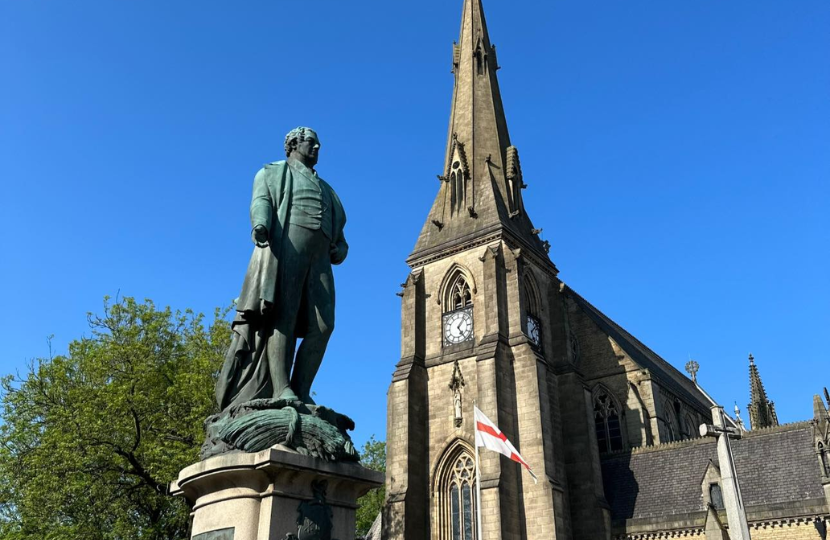
Working class heritage is in the spotlight once again as Historic England announces further funding to uncover the stories of people and places often missing from the history records.
Castles, cathedrals and grand country houses are well documented but far less is known about ‘everyday heritage’ – the pubs, factories, football clubs and council estates where most people have lived, worked and played for hundreds of years.
Historic England is inviting community and heritage organisations to apply for funding through its ‘Everyday Heritage Grants: Celebrating Working Class Histories’ - for creative projects which will unlock and bring these stories to life.
Launched for the first-time last year, the scheme has already funded 57 projects, celebrating fascinating untold stories from across England.
The emotional memories of football fans are captured in ‘We.Are.Derby’; the experiences of nurses from the Caribbean at a hospital in Bristol are recorded in ‘Answering the Call’; and the blood, sweat and toil of the 17,000 migrant workers who build the 36-mile Manchester Ship Canal are honoured in a project called ‘Navvies’.
Each grant awarded last year has left lasting legacies for the communities involved. They include traditional blacksmithing skills learned by young people in Winson Green, Birmingham, a documentary celebrating the proud working-class history of West Yorkshire’s boxing clubs, exhibitions of artwork, anthologies of creative writing and a community garden at Media City in Salford.
Everyday Heritage Grants: Celebrating Working Class Histories is one of the cultural projects Historic England is delivering to shine a light on the diversity of the nation’s heritage.
James Daly, MP for Bury North, said:
“Our town has a proud heritage, being home to the Lancashire Fusiliers and at the heart of the industrial revolution. While we have huge monuments and statues of men like Sir Robert Peel, around every corner there are stories of men and women from our town's past that are rarely told. That is why it is so brilliant that Historic England are providing these grants and I truly hope we will be able to recognise some of those who went before us here in Bury.”
Sean Curran, Head of Inclusion at Historic England, said:
“We are delighted to announce further funding through our Everyday Heritage Grants: Celebrating Working Class Histories. Heritage is all around us but often the stories of ordinary people and places aren’t included in the archives and memories of their extraordinary impact on history fade away.
“We’re looking for creative projects which bring communities together, unlocking the stories and celebrating the people and places at the heart of our history. They have shaped our local identities and are integral to our country and culture.”
HOW TO APPLY
Historic England is inviting community and heritage organisations across the country to apply for grants of up to £25,000 through its Everyday Heritage Grants: Celebrating Working Class Histories.
Applications for funding for smaller grass roots projects starting at £1,000 are also welcome.
Each project should enable people to share untold stories about the places where they live, encouraging communities to examine and tell their own stories in their own ways.
The projects selected will contribute positively to participants’ wellbeing, as well as
providing innovative volunteering opportunities. Local heritage gives people a sense of pride in place and can act as a powerful catalyst for increasing local opportunities and prosperity.
Applications open on Thursday, 7 September and close on 7 November 2023.
For more information visit https://historicengland.org.uk/everydayheritage/
Projects awarded grants in 2022 include:
- Salford, Manchester - a grant of £22,000 has funded ‘Navvies’, a project commemorating the 17,000 labourers who dug the Manchester Ship Canal, produced by arts organisation Mediale
Digging on the Manchester Ship Canal, runs 36 miles from Salford to the Irish Sea, started 136 years ago. It took six years to build with the blood, sweat and toil of 17,000 labourers, many of whom came from Ireland.
The project ‘Navvies’ was set up to highlight and honour their hard work and sacrifice and connect local people with this iconic landmark.
Local artist Matthew Rosier, volunteers, heritage experts and Salford’s Loaves and Fishes charity have worked together to create a lasting tribute, in the form of a community garden in Media City.
The sustainable garden, which the public will be able to walk through and enjoy, will feature fruit trees, ornamental plants as well as vegetable beds. Seasonal produce will be donated to Salford Food Bank. Food poverty was a key driver in Irish migration during the construction of the Manchester Ship Canal and the community group felt it important to address this through the garden.
A range of community events during and at the end of the project have celebrated local working class and Irish heritage.
The series of projects was commissioned by Quays Culture, MediaCity and Mediale and produced by Mediale and Quays Culture, with support from Loaves and Fishes and BBC Philharmonic. It was supported by Historic England, the Arts Council England and the Greater Manchester Combined Authority.
- Blackpool, Lancashire – a grant of almost £10,000 has funded a project about the history of Blackpool's African and Caribbean Working-Class community, run by the Aunty Social Community Interest Company
The project is building a new archive documenting and engaging people with the heritage of Blackpool’s working class African and Caribbean community and their relationships to places and buildings in the town.
Co-created with Blackpool, Fylde & Wyre African Caribbean Friends and Relations Association (AFRA), Aunty Social CIC is building the archive through photography, film and oral histories. Participants are invited to add their own artwork, images and stories to the archive, to help document and engage people with the heritage of their community.






